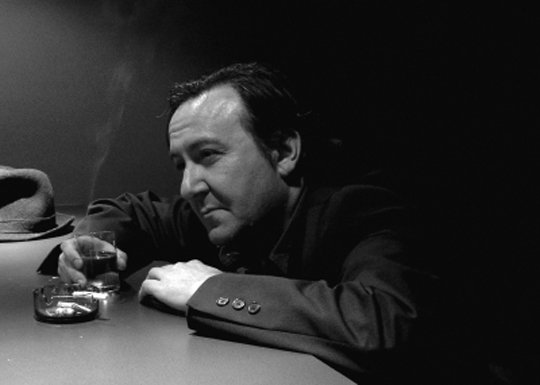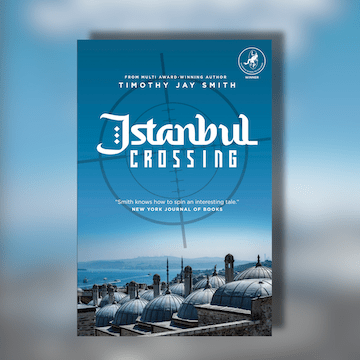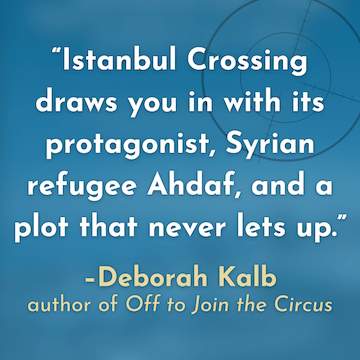 A day or two ago Paul D Brazill’s latest collection of short stories, Snapshots, arrived. This will be no surprise to many followers of the short crime and flash fiction scene. The author’s gritty tales, scrawled in blood, puke and God knows what else, have been catching the imagination of those who enjoy the darkest of noir. However, what may raise an eyebrow is the fact that Brazill is now tackling the longer format with a reworking of his story Guns of Brixton due to arrive later this spring. Widely associated with the Brit Grit sub-genre (he even had a collection out under that title), he’s endorsed many up and coming British noir and hardboiled writers. We wanted to know him a bit better so fired a few quetions his way…
A day or two ago Paul D Brazill’s latest collection of short stories, Snapshots, arrived. This will be no surprise to many followers of the short crime and flash fiction scene. The author’s gritty tales, scrawled in blood, puke and God knows what else, have been catching the imagination of those who enjoy the darkest of noir. However, what may raise an eyebrow is the fact that Brazill is now tackling the longer format with a reworking of his story Guns of Brixton due to arrive later this spring. Widely associated with the Brit Grit sub-genre (he even had a collection out under that title), he’s endorsed many up and coming British noir and hardboiled writers. We wanted to know him a bit better so fired a few quetions his way…
First off, can you give us a quick snapshot of… er… Snapshots?
It’s 21 sharp snapshots of the dark side of life, as seen through my booze and blood splattered, chiaroscuro lens. In other words, flash fiction and short stories. Horror, crime, noir, black comedy. Pasties. Sausage rolls. Scotch eggs. The lot!
And what’s the news on Guns of Brixton, your novel?
Guns of Brixton is coming out this spring from the very cool Brighton-based publisher, Pulp Press. It started out as a short story that first appeared at Crime Factory magazine and was later republished in The Mammoth Book Of Best British Crime 8. It’s a violent and foul-mouthed Ealing Comedy style yarn about gangsters, a sax-playing hit man, a priest and a missing suitcase.
You’re known for your dialogue. Why do you enjoy that method of storytelling?
I’ve only done one dialogue-only piece – a story called Thump, which is in my collection 13 Shots Of Noir – and that’s a one-sided dialogue which I did to see if I could get away with it. There is a lot of dialogue in my stuff, probably because I prefer the things people say to what they do. There can be world of difference between those two things, too! That’s one of the things I like about Elmore Leonard. A lot of his characters do not walk it like they talk it. Like most of us.
Your name is often associated with the phrase Brit Grit. For you, what characterises Brit Grit fiction nowadays?
Well, I think, just as a lot of the best American crime fiction blurs into the dirty realism of Richard Ford, Harry Crews and Charles Bukowski, Brit Grit is a strand of crime fiction that blurs into British social realist writers like Allan Silltoe, Shelagh Delany and John Osborne. I wrote a piece about Brit Grit for the program of the 2010 Noircon, which was republished at Pulp Metal Magazine. It mentioned writers like Ray Banks, Tony Black, Allan Guthrie and Charlie Williams, who were casting their bloodshot eyes over Britain’s grubby underbelly – a world away from cozies and Latin-quoting police detectives.
You’re from Hartlepool but now based in Poland. Does your new location now come into your writing?
Well, before I moved to Poland, I’d lived in London for 10 years. But I took a sabbatical from work in 2001 which included a trip to New York and then a month in Madrid to do a TEFL course. After the course I quickly got a job teaching English here in Poland and never went back to England to live. I haven’t written that much about Poland but it has started to creep into my work, more and more. I’m currently writing a noir story for an Italian publisher, which is set in Warsaw.
For you, who are the true greats of crime fiction?
Well, I certainly consumed a lot of Jim Thompson over a short time, about 20 years ago. I like how he evokes the claustrophobia of small towns in his books. And Elmore Leonard, of course. Masterful dialogue. I think the influence of Bukowski and Damon Runyon are most apparent in my writing but I’ve been influenced by everything that’s passed through my noggin – not just books and not just crime fiction. The films of Billy Wilder. Tony Hancock. Ealing Comedy. The music of The Fall and Tom Waits. Blokes down the pub.
Snapshots is out now and you can order it from Amazon below, along with 13 Shots of Noir and Off the Record, the charity anthology of short stories compiled by CFL writer Luca Veste.









Ordered love! Paul is one of my most favoritest writers EVER. Anyone debating on a book that’s a dollar needs to be reassured PB definitely will rock their socks with some GREAT Noir!
The influence of Tony Hancock on modern crime fiction had not been heretofore recognised sufficiently. I feel an academic study coming over me: time to apply for funding.
Looking forward to putting my feet up to read the collection.
Paul D. Brazill gives so much to other writers with his interviews, book blurbs, reviews and just general call-outs and shout-outs that this is long overdue–someone interviewing him! He’s one of my favorite writers of all time and at the top of my list of favorite human beings. If you don’t read Paul Brazill, you haven’t read the best of noir and the best of writing, period.
Snapshots is a great book, Paul at his finest, he mentions all the ingredients of a good old fashioned British pub, sausage rolls, Scotch eggs. And he delivers the gangland flavour of the kind of early Noir violence of those pubs, a great read.
Thanks for the interview and thanks to all who read it!
Paul, you definitely have a knack for dialogue – I do enjoy your Brit Grit – always original and fun to read.
Cheers on your new book, Snapshots- you’ll be going places soon ; )